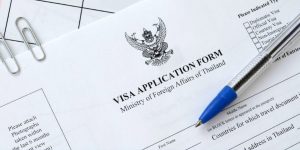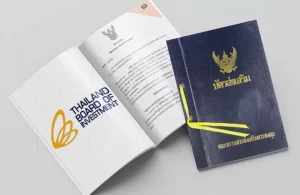Thai business partnerships are collaborative business structures governed by Thailand’s Civil and Commercial Code. They offer a flexible way for both locals and foreigners to conduct business together while sharing resources and profits. The primary partnership structures in Thailand are Unregistered Ordinary Partnerships, Registered Ordinary Partnerships, and Limited Partnerships. Each type carries different levels of liability, taxation, and registration requirements, making it essential to understand the distinctions before entering into a partnership.
1. Types of Thai Business Partnerships
a) Unregistered Ordinary Partnership
In an unregistered ordinary partnership, two or more partners manage a business together without formal registration. All partners hold unlimited liability, meaning each partner is personally responsible for the partnership’s debts, exposing their personal assets to business liabilities. This type of partnership is relatively simple and is often used for small businesses.
b) Registered Ordinary Partnership
After registering with the Department of Business Development (DBD), a registered ordinary partnership is recognized as a legal entity, allowing it to operate independently of its partners. Although registration provides additional structure, partners still retain unlimited liability. Registration benefits include access to business credit, contracts, and the right to hold assets under the partnership’s name.
c) Limited Partnership
In a limited partnership, there are two types of partners: general partners and limited partners. General partners manage the business and have unlimited liability, while limited partners contribute capital but have liability only up to their invested amount. This structure is ideal for partnerships with passive investors, as it shields limited partners from extensive liability while granting the general partner full operational control.
2. Liability and Ownership in Partnerships
The liability structure varies significantly between partnership types. In both unregistered and registered ordinary partnerships, all partners share joint and several liability, meaning each partner is fully liable for the business’s debts and obligations. In limited partnerships, only the general partners bear unlimited liability, with limited partners’ exposure capped at their initial investment.
Foreigners seeking partnership options in Thailand must consider restrictions under the Foreign Business Act (FBA), which limits foreign ownership to 49% in restricted industries unless they obtain a Foreign Business License.
3. Taxation of Thai Partnerships
All registered partnerships are separate taxable entities and must file annual tax returns.
- Corporate Income Tax (CIT): Registered ordinary and limited partnerships pay CIT on profits, generally at a rate of 20%. However, small and medium-sized enterprises (SMEs) may qualify for reduced tax rates:
- 0% on profits up to THB 300,000
- 15% on profits from THB 300,000 to THB 3 million
- Personal Income Tax (PIT): Partners also report their share of profits on their personal tax returns, which may lead to double taxation unless profits are distributed directly through personal income.
Partnerships are also subject to VAT registration if their revenue exceeds THB 1.8 million annually.
4. Essential Clauses in a Partnership Agreement
A comprehensive partnership agreement is essential for ensuring clarity and stability in operations, covering key areas such as:
- Profit and Loss Distribution: This specifies each partner’s share of the profits and losses, ensuring transparency and agreement from the outset.
- Capital Contributions: Outlining each partner’s financial and resource contributions helps define ownership stakes and responsibilities.
- Management and Decision-Making: Defines operational roles and limits each partner’s authority, especially in limited partnerships where limited partners do not manage the business.
- Dispute Resolution: Specifying arbitration or mediation processes in advance can prevent prolonged legal disputes.
- Exit Strategy: Details regarding conditions for withdrawing capital, transferring partnership interests, or dissolving the partnership.
A clear agreement protects each partner’s interests and ensures smooth operation within the bounds of Thai law.
5. Registration and Compliance Requirements
Registered partnerships and limited partnerships must register with the Department of Business Development (DBD). This includes several steps:
- Name Reservation: The DBD requires that partnerships register a unique business name.
- Submission of Required Documents: Documentation includes identification of each partner, capital contributions, and the partnership agreement.
- Annual Reporting: Registered partnerships and limited partnerships must submit financial statements and tax returns annually. Compliance failures can lead to fines or loss of registration.
6. Termination and Dissolution of Partnerships
A Thai partnership may be dissolved under specific circumstances:
- Mutual Agreement: Partners agree to dissolve voluntarily.
- Court Order: A court may order dissolution if the partnership is insolvent or if one partner is mismanaging funds.
- Expiration of Term: If created for a specific period, the partnership dissolves upon its expiration unless extended.
Upon dissolution, assets are used to settle any debts, with remaining funds distributed to partners according to their shares or capital contributions.
Conclusion
Thai business partnerships offer a flexible structure for local and foreign investors, accommodating different levels of liability, taxation, and operational roles. Understanding the benefits, risks, and legal obligations of each partnership type is crucial to establishing a secure and effective business foundation. With proper planning, a well-drafted partnership agreement, and compliance with Thai regulations, partnerships can provide a sustainable pathway to success within Thailand’s growing economy.















